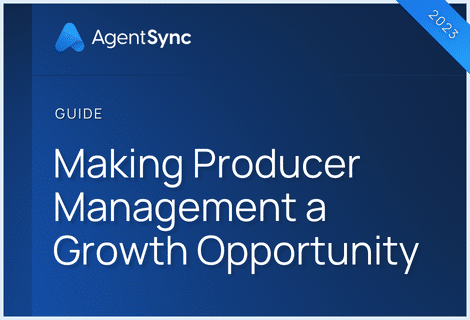

The average person may fear ghosts, goblins, witches, or spiders, but if you work in insurance compliance, you’ve got a whole other set of nightmares to worry about. In 2020 alone, states across the U.S. imposed $190,601,355 in fines on insurers, agencies, and producers in total. Specifically, licensed insurance producers (including individuals and entities) incurred $40,606,431 in fines and restitutions for a litany of compliance violations.
At AgentSync, we take pride in solving some of the industry’s most nightmarish compliance situations for independent agencies, insurance carriers, MGAs, and MGUs. As a cautionary tale this Spooky Season, here are three of the scariest compliance horror stories we could find.
But we have a feeling there are even more out there. If you have a ghastly compliance tale to tell, you can drop it here without fear. No name or email address is required and we promise not to name names if we share your horror story as a warning to others.
Health share ministries face fines for swimming too close to the health insurance lane
Imagine this: You purchase a “membership” to a group that promises to pay your medical bills in return for your monthly membership fee. It’s a lot less expensive than health insurance, but seems like it’ll do the trick if you get sick or injured. But then, just when you need help, the company refuses to reimburse any of your expenses. Welcome to the all-too-real nightmare of health share ministries.
Who you gonna call? It’s not Ghostbusters, but your state insurance commissioner might be the superhero you need in this situation. Even though health share ministries are decidedly not health insurance, they can still be penalized for conducting business that crosses the line into insurance without the proper licensing.
In 2019, Pennsylvania barred Aliera Healthcare from offering plans in the state. But like a zombie that just won’t die, the company was back for more in 2021. Following a number of consumer complaints, Pennsylvania Insurance Commissioner Jessica Altman levied nearly $80,000 in penalties against the company for “improper insurance practices.”
And the horror story doesn’t end there! Aliera Healthcare, doing business under different names and morphing into different forms, was also fined $1 million for operating without a license in the state of Washington, plus $50,000 from the state of Connecticut.
One of the scariest parts of this tale is that consumers don’t always know that what they’re getting with health share ministries isn’t insurance, which means there are no regulations guaranteeing they’re protected in case of fraud or other bad behavior.
A record-breaking $27.5 million fine from the state of California
The penalties imposed on health share ministries don’t hold a candle to the spine-tingling amount of $27.5 million that California fined Mercury Insurance in 2015. After a several-years-long legal battle, a California court of appeals upheld the penalty in 2019 and made Mercury Insurance pay.
Like a young woman walking alone down a dark alley at the start of a horror flick, Mercury Insurance should have known better. It did, afterall, receive warnings from the Department of Insurance not to charge fees to consumers above and beyond the insurance premiums approved by the DOI. But instead of heeding those warnings, Mercury Insurance allowed its agents to charge consumers fees that California deemed to be “unapproved and unfairly discriminatory rates.”
In response, the state of California proved to be the hero that no one asked for, but everyone deserved. It imposed the largest ever fines against a P&C insurer in the state’s history. Hopefully, putting an end to the nightmare of unapproved fees Mercury Insurance charged its customers.
Who needs a license anyway?
Technically, anyone who sells, solicits, or negotiates insurance needs to be licensed by their resident state and any other states in which they sell, solicit, or negotiate insurance. But not if you ask Salvasan Health!
In one of the scariest scary compliance stories we could find, Salvasen appears to have sold policies to around 65,000 consumers nationwide without a license. In April, 2022, the state of Texas ordered Salvasen to stop selling “unauthorized health insurance” policies and begin shutting its business down. We don’t know about you, but there’s almost nothing scarier than the phrase “unauthorized health insurance policies.”
For thousands of consumers, nightmares became a reality as they faced unpaid medical claims after purchasing what they thought were legitimate health insurance policies. Outside of Texas, Salvasen sold policies to consumers in Michigan, Wisconsin, Minnesota, Nevada, and Massachusetts. While many states ordered Salvesan to cease and desist, issued preliminary fines, and have ordered the company to pay outstanding claims, it remains to be seen whether any regulatory agencies will level a larger, more substantial financial penalty.
Scary compliance stories aren’t just for Halloween
In talking to customers over the last few years, we’ve heard more scary compliance stories than we can count. Somehow, those working at insurance agencies, carriers, and MGAs still all too often believe compliance nightmares can’t happen to them.
The truth is, these kinds of things happen all the time. And it’s not always due to bad actors: Outdated tech, manual processes, and information silos can cause compliance nightmares faster than you realize. Luckily, there’s a foolproof remedy to compliance nightmares large and small. See how AgentSync’s solutions can take the effort and risk out of producer license compliance management, producer appointments, continuing education, and more.

